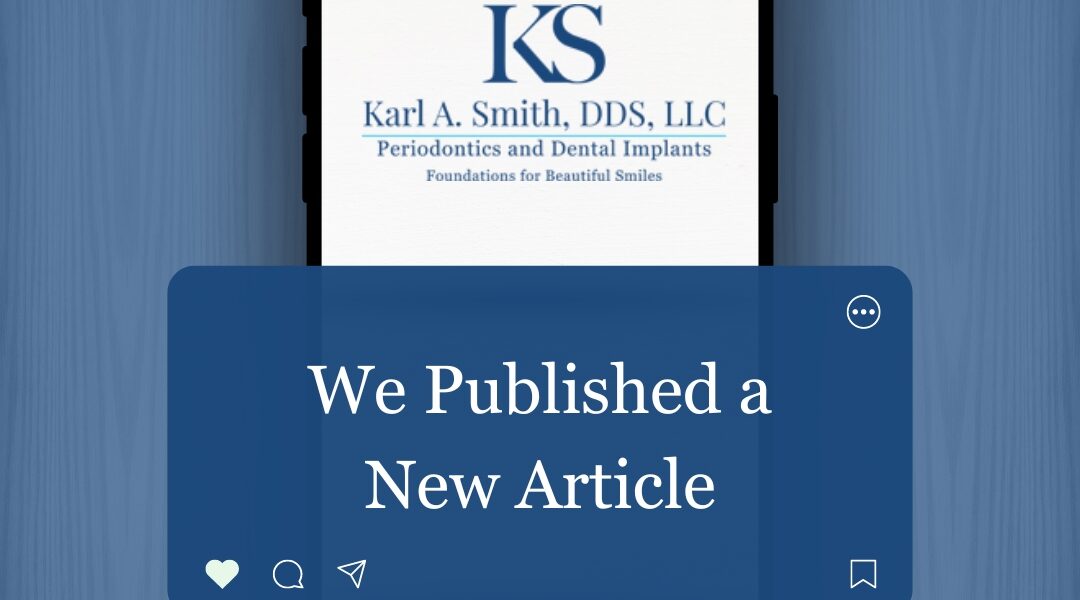
Your mouth is home to many bacteria, some beneficial and others harmful. While some bacteria help maintain oral health by breaking down food particles, an overgrowth of harmful bacteria can lead to tooth decay and gum disease. The imbalance between these bacteria can have long-lasting effects on both your oral and overall health. As your trusted periodontist, Dr. Karl A. Smith is here to help you understand the link between gum disease and overall health, and how to prevent serious complications.
The Buildup of Harmful Bacteria
Bacteria in your mouth form a sticky, colorless film called plaque. If plaque isn’t removed through regular brushing and flossing, it can harden into tartar. Tartar is much harder to remove and can only be cleaned by a dental professional. Regular cleanings are essential to preventing the buildup of plaque and tartar, which can contribute to gum disease and other oral health issues.
From Plaque to Gum Disease
If plaque and tartar are not properly managed, they can cause significant harm to your gums. Gingivitis, the earliest stage of gum disease, is characterized by red, swollen gums that may bleed when you brush or floss. Fortunately, gingivitis is reversible with professional care and proper home oral hygiene. Routine cleanings and diligent at-home care can help prevent this condition from progressing.
Progression to Periodontal Disease
If gingivitis goes untreated, it can evolve into periodontal disease, which affects not only the gums but also the underlying bone that supports your teeth. As periodontal disease progresses, the gums may begin to pull away from the teeth, creating pockets that can become infected. Over time, the infection can destroy the bone and tissues, potentially leading to tooth loss. As a periodontist, Dr. Karl A. Smith specializes in diagnosing and treating periodontal disease, helping to preserve both your smile and your oral health.
Impact on Overall Health
Periodontal disease doesn’t just affect your mouth. It can also increase your risk of other serious health conditions. Research has linked gum disease to conditions such as diabetes, heart disease, and stroke. The inflammation and infection associated with periodontal disease can contribute to these conditions, which is why maintaining good oral health is vital to your overall well-being.
Prevention and Treatment
The best way to prevent gum disease is through a combination of good oral hygiene and regular dental visits. Here are a few key steps to protect your oral health:
- Daily Brushing and Flossing: Brush twice a day and floss daily to remove plaque and prevent tartar buildup.
- Regular Dental Check-ups: Schedule regular visits for professional cleanings and exams with Dr. Karl A. Smith.
- Healthy Diet: A balanced diet, low in sugary foods, can help reduce plaque buildup.
- Avoid Tobacco: Smoking and other tobacco use can increase your risk of gum disease and should be avoided.
Your oral health plays a critical role in your overall health. If you’re experiencing symptoms of gum disease or want to learn more about maintaining optimal oral health, contact Dr. Karl A. Smith, DDS, MS, today. Our team is here to provide personalized care and help you maintain a healthy, beautiful smile.




